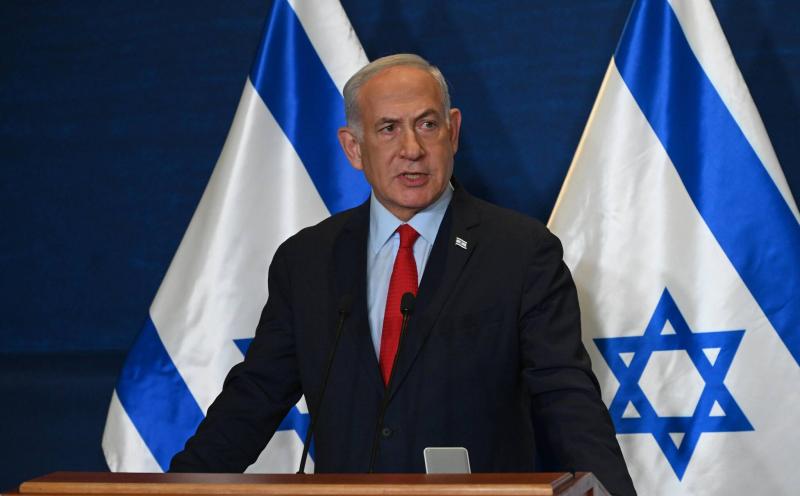The Israeli Supreme Court is set to hear today, Thursday, the first challenge from a series of appeals against the actions taken by the coalition government of Prime Minister Benjamin Netanyahu, which has led to a judicial crisis that has shaken Israel for months. The appeals, submitted by watchdog groups and opposition lawmakers, request the court to issue a ruling against some of the judicial reforms that the ruling coalition is seeking to pass, which have sparked unprecedented protests.
The Supreme Court is facing increasing scrutiny, as many view it as the guardian of fundamental rights, while others disdain it as elitist and overstepping its authority.
**Disqualification Amendment**
The challenge that the court will consider today concerns an amendment to a "Basic Law" that sets limited conditions for deeming a Prime Minister unfit for duty or disqualified from office. The Attorney General stated that the Israeli Knesset, controlled by the ruling coalition, misused its power to tailor the law to suit Netanyahu, who is on trial for corruption charges he denies, and therefore the amendment should be annulled. Supporters of the law argue that it aims to protect any democratically elected leader from wrongful dismissal.
**Reasonableness Argument**
The Supreme Court, consisting of 15 judges, is scheduled to convene on September 12 for the first time in Israel's history to consider an appeal against an amendment to a Basic Law that limits its powers. The legislation, ratified by parliament on July 24, removes one of the tools the court has to annul government and ministerial decisions or appointments. This tool allows the court to rule on the unreasonableness of actions. The legislation caused an uproar in Israel and led to immediate appeals to the court to annul it for violating Israel's democratic checks and balances. Netanyahu claims it is a simple amendment aimed at restoring balance between branches of government by curbing judicial intervention.
**Constitutional Quagmire**
Both amendments concerning disqualification and the reasonableness argument are part of Basic Laws, which the court has so far refrained from annulling. Some have described the annulment or amendment of a Basic Law in Israel as akin to the court using a destructive legal weapon. This could likely exacerbate the current crisis. Since Israel does not have a written constitution, it relies instead on Basic Laws that enshrine certain rights and freedoms and establish the rules of governance, holding a superior status over ordinary laws. However, Basic Laws can easily be added to or amended by a majority decision in the Israeli parliament, which is heavily dominated by coalition governments. For this reason, some legal experts argue that judicial oversight of Basic Laws is crucial to prevent abuses of power, even if the scope of that oversight is unclear. Critics of the court see it as an intervention that violates the authority of the legislative body.
**What Netanyahu Says**
The Likud party reiterated in a statement on July 31 the remarks made by its leader Netanyahu recently, stating that "Israeli governments have always respected the law and judicial rulings, and have always respected the Basic Laws. These two pillars form the foundation of the rule of law in Israel and the balance between authorities in any democracy. Any deviation from either of these principles will cause serious harm to the Israeli democracy, which is in dire need of calm, dialogue, and responsibility these days."
**Judges Committee**
On September 7, judges will consider a request to compel Justice Minister Yariv Levin to convene the committee that selects judges in Israel. This committee has been at the heart of the judicial battle since January, when Levin announced the government’s plan for judicial reforms, including changing the committee's composition to grant the ruling coalition decisive power in selecting judges. A bill with this content was submitted to parliament but has not yet been ratified. While the fate of the committee is uncertain, the vacant positions among judges remain unfilled. As of mid-October, the positions of Chief Justice and another Supreme Court judge will join those vacancies.
**Netanyahu's Dismissal**
There is another appeal with the court that has not yet been heard, requesting Netanyahu's dismissal from office, attributing this request to a conflict of interest due to his push for judicial reforms while facing trial. Speculation in Israel suggests that Netanyahu hopes the indictment against him will be withdrawn through amendments to the legal system. Netanyahu denies any connection between his trial, which he describes as a political campaign against him, and the judicial reforms he seeks to implement.




